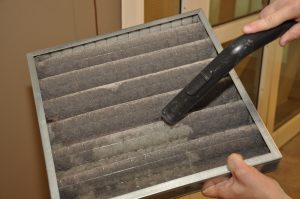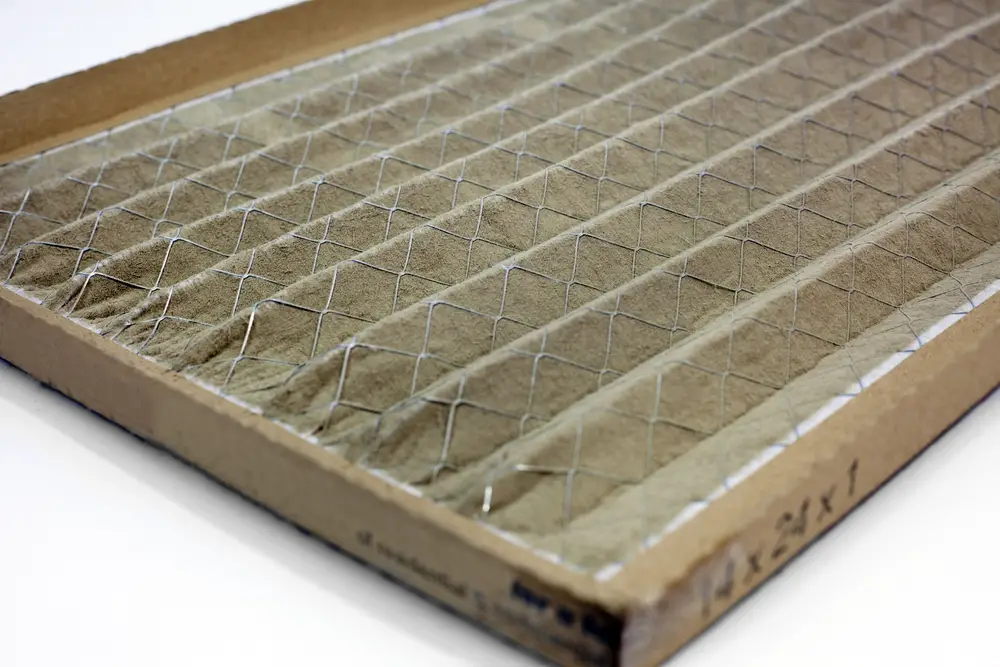As society becomes increasingly aware of the need for environmental sustainability, the question of whether air conditioner filters are recyclable has gained significance. Air filters are an essential component of any HVAC system, as they help to improve indoor air quality by trapping dust, dirt, and other particles. However, they eventually need to be replaced, raising the question of how to properly dispose of them in an eco-friendly manner.
What are some ways to recycle a dirty air filter?
To recycle a dirty air filter, there are various methods that can be employed to ensure that the materials are appropriately dealt with. One approach is to reach out to the air filter supplier to inquire about local recycling facilities equipped to handle used filters. Additionally, many recycling companies offer mail-in prepaid mailers specifically designed for the disposal of used air filters. Through such programs, some recycling companies may even provide a new filter constructed from recycled materials in exchange for returning the used filter.
Are furnace filters recyclable?
Furnace filters can indeed be recycled, but the process is a bit more complex than simply tossing the filter into the recycling bin. While the frame of an air filter is typically made of recyclable material, the filter itself may contain a variety of materials such as fiberglass, wire mesh, paper, and plastic. These different materials can complicate the recycling process, as the non-recyclable components in the filter may contaminate batches of recyclable materials. Therefore, it is possible to recycle furnace filters, but it may require special handling to separate and properly dispose of the different components.
Types of Air Conditioner Filters
Before we delve into the recyclability of air conditioner filters, it’s important to understand the different types available in the market. The most common types of air filters are:
| Type | Description |
|---|---|
| Disposable Fiberglass Filters | These are the most basic and commonly used air filters. They are made of layered fiberglass fibers and are designed to capture large particles. |
| Pleated Filters | These filters have a larger surface area due to their pleated design, allowing them to capture smaller particles compared to fiberglass filters. |
| Washable/Reusable Filters | These are made of durable materials and can be washed and reused multiple times. They are considered more eco-friendly than disposable filters. |
Recyclability of Air Conditioner Filters
When it comes to recycling air conditioner filters, the answer is not entirely straightforward. Disposable fiberglass and pleated filters are typically not recyclable due to the nature of their materials. These filters are designed for one-time use and are made of fiberglass, which is not easily recyclable. While this information sheds light on the limitations of recycling certain types of air filters, it is important to consider the broader picture of air filter composition. Air filters consist of a combination of recyclable and non-recyclable materials, including cardboard or plastic frames and polyester, fiberglass, or synthetic fibers.
This complexity in materials poses challenges in the recycling process, as separating recyclable components from non-recyclable ones is crucial to prevent contamination and ensure environmentally friendly disposal. In contrast, washable/reusable filters emerge as a more sustainable option, as they are designed to withstand multiple wash cycles, reducing the amount of filter waste generated. Some washable filters even utilize recyclable materials like aluminum, making them a more eco-conscious choice. By acknowledging the diverse composition of air filters and the importance of proper disposal methods, individuals can make informed decisions to minimize environmental impact.
How to dispose of old furnace filters?
When disposing of old furnace filters, it is important to consider their recyclability and proper disposal methods. Furnace filters typically consist of a mix of recyclable and non-recyclable materials. To ensure environmentally responsible disposal, there are several steps you can take:
1. Contact your filter supplier or the local recycling center to inquire about their recycling programs for used filters.
2. Check if your filter manufacturer provides prepaid mailers for sending back used filters for recycling.
3. Explore local recycling options to see if any facilities accept furnace filters for proper disposal or recycling.
4. Consider replacing old filters with new ones made from recycled materials when possible to promote sustainability.
By taking these steps, you can effectively manage the disposal of old furnace filters in an eco-friendly manner.
Proper Disposal of Air Conditioner Filters
While disposable filters may not be recyclable, there are still eco-friendly practices for their disposal. Many HVAC companies and local waste management facilities offer filter recycling programs. These programs collect used air filters and ensure that they are disposed of in an environmentally responsible manner. Even though the filters themselves may not be recyclable, the responsible disposal of them can still have a positive impact on the environment.
It’s important to note that proper disposal of air conditioner filters is crucial not only for environmental reasons but also for indoor air quality. Used filters can contain a buildup of contaminants that could be released into the air if not handled and disposed of correctly.
What are washable air filters and their benefits?
“Reusable air filters, also known as washable filters, are a sustainable option for maintaining indoor air quality. These filters are crafted from durable materials that can withstand multiple wash cycles, making them a more environmentally friendly choice compared to disposable options. Disposable fiberglass and pleated filters, commonly used in HVAC systems, are not recyclable due to the materials they are made of. These filters are intended for one-time use and are composed of fiberglass, a material that is not easily recyclable. On the other hand, washable/reusable filters offer a more sustainable solution. Not only can these filters be washed and reused multiple times, but they also help reduce the amount of filter waste generated. Some washable filters are constructed from recyclable materials like aluminum, further enhancing their eco-friendly profile. However, it is important to note that while washable filters are durable and can be an economical choice in the long run, they may not be suitable for individuals with asthma, allergies, or other health concerns that require minimal exposure to airborne pollutants or pathogens. This consideration highlights the importance of selecting the right air filter based on individual health needs.

Credit: www.berico.com
Conclusion
While the recyclability of air conditioner filters varies depending on the type, it’s clear that the industry is moving towards more sustainable options. Washable/reusable filters offer a greener alternative to traditional disposable filters, and proper disposal methods can further mitigate the environmental impact of filter waste. As technology and materials continue to advance, we can expect to see more innovations in air filter recyclability and sustainability in the future.
Ultimately, as consumers, we can contribute to environmental conservation by choosing the most eco-friendly air filter options and ensuring that used filters are disposed of responsibly.
FAQ:
What are some popular sizes of air filters available?
Some popular sizes of air filters that you can find include 14x18x1, 14x14x1, 16x20x1, 16x25x1, 20x30x1, 20x25x1, and others. These sizes are commonly used and readily available for purchase.
What is the environmental impact of inefficient air filters on energy consumption?
Inefficient air filters have a notable environmental impact on energy consumption due to the increased energy required for the ventilation system to cope with blockages caused by high MERV rated or dirty filters. The additional energy needed to maintain airflow through the HVAC system exacerbates the overall energy usage, imposing a heavier burden on both financial resources and the environment.
How do high MERV ratings impact energy consumption in HVAC systems?
High Minimum Efficiency Reporting Value (MERV) ratings impact energy consumption in HVAC systems by requiring more energy for airflow to pass through the system. This increased energy demand can have negative effects on both utility bills and the environment. Additionally, when a high-MERV rated filter becomes dirty, it can further impede airflow, leading to even greater energy consumption. Regular maintenance of the HVAC system, including the air filter, is important in order to optimize energy efficiency, potentially reducing monthly bills and minimizing the system’s environmental impact.
How can reusable air filters help reduce environmental impact?
Reusable air filters help reduce environmental impact by reducing the amount of waste generated compared to disposable air filters. Because they can be washed and reinstalled, reusable filters have a longer lifespan and do not need to be frequently replaced, thus decreasing the number of filters being discarded into the environment. Their durable materials also contribute to this sustainability, as they last longer and do not need to be replaced as often as disposable filters. While reusable filters may be initially more expensive, their long-term use and maintenance benefits make them a more environmentally friendly choice in the long run.
What factors determine how frequently a home’s air filters need maintenance?
The frequency of maintenance needed for a home’s air filters is determined by various factors, such as the type of air filter used, the environment surrounding the home, and the Minimum Efficiency Reporting Value (MERV) ratings of the filters. Generally, factors like the quality of air intake, the presence of pets, and the overall cleanliness of the surroundings can also influence how often filters should be changed.
What are some common topics covered in Filter King’s air filter guides?
Filter King’s air filter guides cover a range of topics, such as providing air filters for homes at affordable prices, offering subscription services for timely filter replacements to prevent airflow issues and excess energy costs, promoting environmental stewardship through recycling used filters to reduce one’s environmental impact. These guides aim to educate consumers on making informed choices for cleaner air and energy efficiency in their households.

